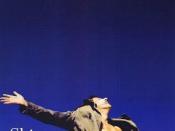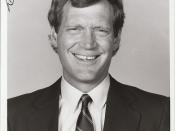As humans, our lives are composed of infinite experiences, sometimes involving the presence of a companion, which bring us closer to discovering our identities, so that we may make the most of lifeÃÂs opportunities. It is this human experience that enables us to transcend mental and physical barriers and to push ourselves to the very end of our limitations, achieving freedom. Through the film, Shine, directed by Scott Hicks, the poem ÃÂRemittance ManÃÂ by Judith Wright and the novel Right Where It Hurts by David Hill, we can see that it is the adversities and the elation that we experience that shapes the individual and ultimately drives us to arrive at the brink of our limitations.
In the film Shine, we are made aware of the ever present limitations in a personÃÂs life and how they are transcended through time in every experience in our lives. Throughout the duration of the film, we see that David is subjected to a vast variety of different boundaries which he must overcome in order to achieve spiritual freedom.
His father Peter is the most overpowering factor in DavidÃÂs incompetence and low self-esteem; his looming presence exemplified by close-ups and low camera angles allowing the viewer to share DavidÃÂs inferiority. He has narrowed down DavidÃÂs activities to focus on piano playing and thus, giving him only one way to connect with society; through music. Thus, the consistent use of piano music in the background of the film reminds us that David is accepted in society as a prodigy, his music giving him the glory that his father has never acknowledged. Through his talent in music, David transcends the barriers that hold him back from being active member of society; the camera trolleys around beneath him in the scene of his return concert, providing a...


